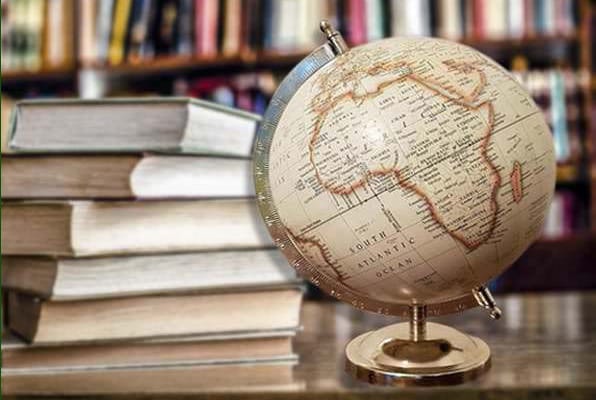In Summary
- The African Continental Free Trade Area (AfCFTA) is expected to boost intra-African trade by around 52% by 2035, strengthening local industries and creating close to 30 million jobs.
- Africa’s projected economic growth rate for 2025 is approximately 4.1%, higher than the global average, highlighting the continent’s rising influence in world affairs.
- Gulf states invested over $53 billion in Africa in 2023 alone, with long-term projects in infrastructure, mining, and agriculture reshaping development across the continent.
Deep Dive!!
Africa is actively shaping its economic future through strategic decisions and stronger regional cooperation. In 2025, the continent is driving growth with bold trade agreements, expanded international partnerships, and major infrastructure investments.
Reports from the African Union and World Bank show that Africa’s projected economic growth of 4.1% in 2025 is higher than the global average. This reflects the continent’s increasing resilience, innovation, and influence in global markets.
Today, African countries are not just responding to global changes — they are setting new standards for economic development.
This article highlights the top 10 geopolitical trends reshaping Africa’s economies in 2025, showing how African nations are turning opportunities into long-term growth.
10. Infrastructure and Energy Partnerships
Africa is accelerating infrastructure development to support economic expansion. In 2025, major projects in ports, roads, power plants, and digital networks are progressing across the continent.
Renewable energy is a key focus: despite having enormous solar and wind potential, Africa previously attracted just 2% of global clean energy investments. Now, large-scale solar parks, hydroelectric dams, and wind farms are being built with international financing.
Strengthening infrastructure not only lowers business costs but also promotes industrialization and regional connectivity, positioning Africa for sustainable growth.
9. Debt Pressures and Financial Reforms
Several African countries have taken decisive steps to manage high debt burdens in 2025. According to the International Monetary Fund (IMF), about 21 African nations remain at risk of debt distress.
To address this, governments are engaging with creditors for restructuring plans. Zambia and Ghana, for instance, have secured agreements with China and other lenders to ease their debt obligations.
Financial reforms, including subsidy cuts and currency adjustments, are critical to stabilizing budgets, maintaining investor confidence, and freeing up resources for essential development programs.
8. Global Supply Shocks – Ukraine War Fallout
The ongoing war in Ukraine continues to impact African economies, particularly in agriculture and energy.
Between 2022 and 2024, fertilizer shortages reduced fertilizer use in some sub-Saharan countries by about 25%, leading to lower crop yields and increased food prices.
As a result, several African governments are diversifying supply sources and investing in local fertilizer production to strengthen food security and stabilize rural economies.
7. West African Security and Regional Fragmentation
In 2025, political transitions in West Africa are influencing economic dynamics. Burkina Faso, Mali, and Niger, led by military governments, have formally withdrawn from ECOWAS and created the “Alliance of Sahel States.”
This move introduces new regulatory and trade environments across the region. Although it presents challenges for economic integration, it also reflects efforts by these nations to define independent economic paths and strengthen internal cooperation.
6. Russia’s Strategic Push
Russia is expanding its economic and security partnerships in Africa. In 2025, Russian companies are investing in mining, energy, and infrastructure projects, such as bauxite exploration in Guinea-Bissau and proposed railway and port developments.
Additionally, Russia supplies about 24% of Africa’s imported arms, offering security assistance that sometimes accompanies resource agreements.
This growing presence provides African nations with more options for partnerships while also shifting traditional geopolitical balances.
5. Turkey and Other Emerging Partners
Turkey, India, China, and Brazil are deepening engagement with Africa. Turkish firms, for example, launched a record 23 new investment projects across Africa in 2024, ranging from textile factories in Egypt to solar farms in Zambia.
Turkey’s trade with Africa rose from around $1.35 billion in 2003 to over $40.7 billion by 2022.
This diversification of partnerships gives African countries greater access to technology, markets, and investment sources beyond their traditional Western allies.
4. Gulf States’ Investment Surge
The Gulf states have dramatically increased investments in Africa. In 2023 alone, firms from the UAE, Saudi Arabia, and Qatar announced 73 new foreign direct investment (FDI) projects worth approximately $53 billion.
These investments cover infrastructure, agriculture, mining, and aviation sectors.
For example, Gulf companies have acquired stakes in Zambian copper mines and African airlines. This deepening economic relationship boosts Africa’s development and opens new avenues for regional growth.
3. Commodity Dependence and Market Shifts
Many African economies still rely heavily on resource exports, with over half earning at least 60% of export revenues from oil, gas, or minerals.
As global demand changes — particularly for strategic minerals like copper and cobalt — Africa’s export earnings face fluctuations.
This reality is pushing African governments to diversify their economies, develop value-added industries, and secure better terms in resource deals to ensure long-term resilience.
2. New Global Alignments and Alliances
Africa is expanding its influence in global decision-making by joining new alliances. Egypt and Ethiopia became members of the BRICS bloc in 2023, amplifying Africa’s voice in major emerging-economy forums.
The African Union has also secured a permanent seat in the G20, reflecting the continent’s rising importance.
These alignments offer new opportunities for investment, technology exchange, and diplomatic influence that support Africa’s long-term development goals.
1. Continental Trade Integration (AfCFTA)
The African Continental Free Trade Area (AfCFTA) stands as the most transformative force shaping Africa’s economic future.
By lowering tariffs, harmonizing trade regulations, and easing the movement of goods and services across borders, AfCFTA is projected to boost intra-African trade by 52% by 2035 and create about 30 million new jobs.
This integration reduces dependence on external markets, strengthens local value chains, and increases Africa’s resilience to global trade disruptions — making it the leading geopolitical trend reshaping Africa’s economies in 2025.

